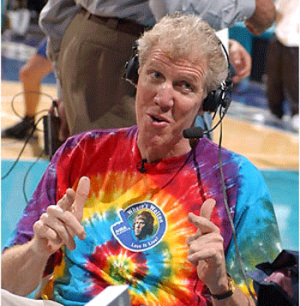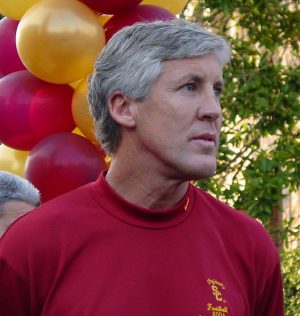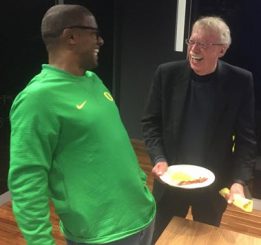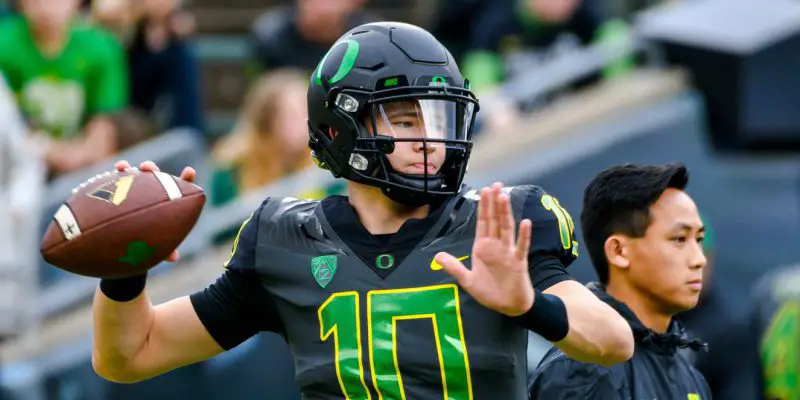The Pac-12: The Conference of Champions.
Conference ambassador Bill Walton inserts it into every basketball telecast he ever does – and for good reason. The Pac-12 is the conference of champions in all of athletics, and it’s not even close. On May 28, the conference won its 500th championship, followed by the B1G with 307, then the SEC with 220. It’s an amazing feat and something the conference, its schools, employees, students and alumni should be proud of.
And then there’s football.
Yes, football: the grandest sport of them all and the signature sport in all of college athletics. No disrespect to the other sports, but with football’s out-of-this-world popularity, money, and quasi-religious status, it’s unquestionably the king.
Something tells me that people in the SEC — the leader in football championships — aren’t losing sleep at night because they aren’t winning more crowns in water polo and lacrosse. The SEC has the most titles in the most important sport. But for Pac-12 fans whose favorite sport is football (like me), the overall championship record is outstanding, but — like a tennis champion who hasn’t won Wimbledon — it is a hollow one.

Pac-12 ambassador Bill Walton is never shy to brag about the Conference of Champions
Go ahead Pac-12 football fans and brag about this achievement on sports blogs and the comments sections of sports pages, if you haven’t already. You would just be setting yourself up for some SEC fan to happily reply, “That’s great, but where does the Pac-12 rank in football championships? LOL!!!”
And sadly, he or she’d be right. The Pac-12 needs to win more football (and basketball) championships, like yesterday.
The “Maddening” Breakdown
Doing research on college football champions is an extremely frustrating experience. It’s not like basketball where there is one indisputable list that is the same no matter where you find it on the web. If you go to ten different websites to find the champions of college football, you’ll probably get ten different lists. And all of them could, arguably, be correct.
In many years, as we all know, separate polls voted for different teams as champions, which created disputes as to who the real champion was. In fact, eleven times — in 1954, 1957, 1965, 1970, 1973, 1974, 1978, 1990, 1991, 1997 and 2003 — the Coaches Poll has crowned a different national champion than the AP Poll.
Through the 1973 season, the Coaches Poll voted its champion before the bowl games. In ’73, Alabama was voted champions in December and then proceeded to lose the Sugar Bowl to Notre Dame, yet still had “the right” to claim at least a share of the crown. Hard to believe such a scandal could have happened during Watergate, and that wasn’t the first time that had happened (Perhaps the President of the NCAA should have resigned.)
Thank goodness for the new College Football Playoff, if only a 100 years too late.
So, for right or for wrong (probably wrong), and in the name of simplicity, this article is going with the AP Poll, which began in 1936. This helps, from a Pac-12 perspective. For example, in 2003, when the AP opposed the BCS outcome and voted for USC, but ruled out the Huskies’s 1991 Coaches crown. (Hmm … a Ducks website favoring a process that denied the Fuskies a natty. No bias here, wink-wink.)

Pete Carroll’s Trojans were the last Pac-10/12 team to win it all, and USC gives the Pac-12 its best chance in 2017
And, instead of giving just one breakdown of championships by conference since 1936, three lists have been created from recent times, sort-of-recent times and not-so-recent times. This is to gain perspective starting from three different generations. We have the Great Depression list (since 1936), the Star Wars list (since 1977) and the BCS list (since 1998). Or approximately the past 80, 40, and 20 years. So here we go:
(This breakdown credits national champions by the AP Poll and current Power 5 conference affiliation. So, for example, Nebraska’s Big 8 and Big 12 crowns get credited to the B1G. And keep in mind that championships won by independents like Notre Dame, or other conferences, are not reflected here.)
The Great Depression (Since 1936): SEC 21, B1G 18, ACC 14, Big 12 11, Pac-12 6
Star Wars (since 1977): SEC 14, ACC 10, B1G 7, Big12 3, Pac-12 3
BCS (since 1998): SEC 9, ACC 4, B1G 2, Big 12 2, Pac-12 2.
So as one can easily see, the SEC is the king, while the best the Pac-12 could muster is a tie for last. (Now would be the time to turn the discussion towards the Pac-12’s dominance in softball.)
So Who in the Name of the Pac-12 Can Win It All?
Here is ranked the five Pac-12 programs that in the near future, say next five years, have at least some sort of a chance:
- USC: The lone conference blue blood and the last one to win it all. USC has the recruiting advantage, prestige and is the first program that comes to mind when talking Pac-12 football. With the best quarterback in the country, and riding momentum from last year, the Trojans are a legitimate 2017 contender.
- Stanford: David Shaw has continued the success instilled by Jim Harbaugh in 2007, and plays the kind of smashmouth style, that can win it all come playoff time.
- Oregon: (See below)
- Washington: The stars were all aligned for the Huskies last year, and as long as they have Chris Petersen, an elite coach, Washington should be a continual threat.
- UCLA: They get thrown in only because they sit in fertile recruiting ground and have talent. Now if they could only get over their underachieving selves, they could do some damage.
And What Are the Ducks Doing About It?
Mark Helfrich was not going to win a national championship at Oregon. Period. So the powers that be did the right thing by firing him.

The powers that be made the right call in choosing Willie Taggart as the man to coach Oregon to its first National Championship
Chip Kelly almost won the natty twice (2014’s runner-up was his baby) because of his innovative, high-speed offense. But that’s not cutting edge anymore: almost everyone does it nowadays and defenses have caught up. So bringing Chip Kelly back was not the solution to the problem. Sure he’d bring a better chance than Helfrich, but not as good of a chance as Taggart.
Why?
The greatest obstacle to the Ducks winning the national championship in 2010 and 2014 was in the trenches. In 2010, the Ducks offensive line couldn’t stop the Auburn D-line, namely Nick Fairley, and in 2014 the Ducks defensive front seven was brutally exposed by Ohio State.
So what does Taggart bring?
For starters, he brings recruiting. Something that Helfrich was poor at, and Kelly only saw as a necessary evil, is something that Taggart relishes. And as we all know, to win in the world of big time college football, recruiting is priority No. 1. His pipeline to Florida is critical, and just look at the defensive beef coming in this year. Freshmen Jordan Scott and Rutger Reitmaier will develop into outstanding players, and transfer Scott Pagano from Clemson should have an immediate impact.
Taggart brings defense. The harsh reality is that it couldn’t possibly get any worse. But bring in an A-plus staff led by Jim Leavitt, and the Ducks will instantly improve by a large margin.
He also brings, presumably, intelligent coaching. He’s a descendant of the Harbaugh family tree and has a proven track record as a program rebuilder. Taggart brings an uptempo offense but, unlike Kelly and Helfrich who at times let the high-speed offense work against them, Taggart knows when to let his foot off the gas (see Coach Fiegenbaum’s excellent article here). And presumably he’ll never go for the two-point conversion five times in a game (Oh, touche!).
The Ducks won’t be a contender for a couple years, but in year three of the Taggart administration, the Pac-12 might just bring home a long-awaited football crown.
And it just might be the Ducks.
Darren Perkins
Spokane, WA
Top Photo by Craig Strobeck
Related Articles:
Ducks Football 2026: Breaking Down Strengths And Weaknesses
These Ducks Will Have Monster Second Seasons as Starters
Oregon Football: Early 2026 Ranking Projections
FishDuck Foaming Over Upside of 2026 Diamond Ducks
Unbelievable...Same SEC Stuff, Different Day
Why Oregon Football Always Belongs in the National Conversation
Darren Perkins is a sales professional and 1997 Oregon graduate. After finishing school, he escaped the rain and moved to sunny Southern California where he studied screenwriting for two years at UCLA. Darren grew up in Eugene and in 1980, at the tender age of five, he attended his first Oregon football game. His lasting memory from that experience was an enthusiastic Don Essig announcing to the crowd: “Reggie Ogburn, completes a pass to… Reggie Ogburn.” Captivated by such a thrilling play, Darren’s been hooked on Oregon football ever since. Currently living in Spokane, Darren enjoys flaunting his yellow and green superiority complex over friends and family in Cougar country.

